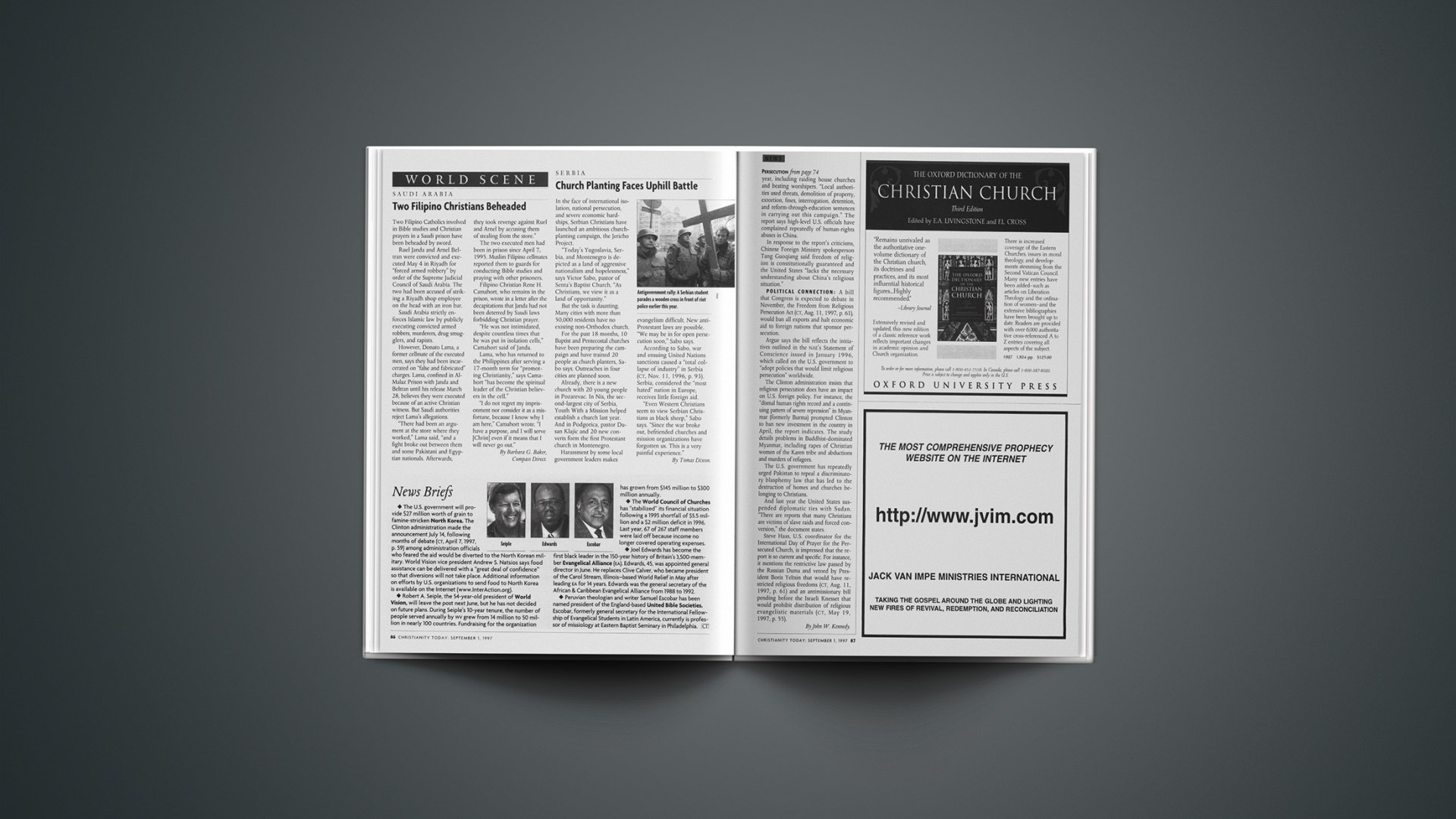—The U.S. government will provide $27 million worth of grain to famine-stricken North Korea. The Clinton administration made the announcement July 14, following months of debate (CT, April 7, 1997, p. 59) among administration officials who feared the aid would be diverted to the North Korean military. World Vision vice president Andrew S. Natsios says food assistance can be delivered with a “great deal of confidence” so that diversions will not take place. Additional information on efforts by U.S. organizations to send food to North Korea is available on the Internet (www.InterAction.org).
—Robert A. Seiple, the 54-year-old president of World Vision, will leave the post next June, but he has not decided on future plans. During Seiple’s 10-year tenure, the number of people served annually by wv grew from 14 million to 50 million in nearly 100 countries. Fundraising for the organization has grown from $145 million to $300 million annually.
—The World Council of Churches has “stabilized” its financial situation following a 1995 shortfall of $5.5 million and a $2 million deficit in 1996. Last year, 67 of 267 staff members were laid off because income no longer covered operating expenses.
—Joel Edwards has become the first black leader in the 150-year history of Britain’s 3,500-member Evangelical Alliance (EA). Edwards, 45, was appointed general director in June. He replaces Clive Calver, who became president of the Carol Stream, Illinois-based World Relief in May after leading EA for 14 years. Edwards was the general secretary of the African & Caribbean Evangelical Alliance from 1988 to 1992.
—Peruvian theologian and writer Samuel Escobar has been named president of the England-based United Bible Societies. Escobar, formerly general secretary for the International Fellowship of Evangelical Students in Latin America, currently is professor of missiology at Eastern Baptist Seminary in Philadelphia.
Copyright © 1997 Christianity Today. Click for reprint information.










